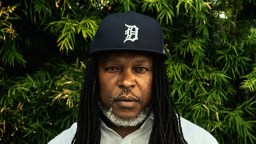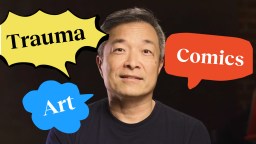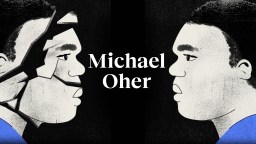Becoming a teenager is complicated. Your body changes, your emotions are heightened and you’re constantly pushing the boundaries of new freedoms. But when your dad is the Prince of Darkness, Ozzy Osbourne, adolescence is even more complicated – and also very, very weird.
“My dad already had a 15-year career by the time I landed on planet Earth,” says Jack Osbourne, TV host, producer, podcaster, paranormal investigator, and spawn of the infamous Black Sabbath frontman. “I was born, and then I was on a tour bus. Growing up at Ozzfest, you do get exposed to a lot of things your average teen shouldn’t be around.”
Jack’s mother, Sharon Osbourne, tried to establish a sense of normalcy amongst the chaos of being surrounded by some of the music industry’s most devious artists, but life only got more complex when MTV approached the family about starring in their very own reality television show.
The price of fame
“Things went warp speed,” remembers Jack about the first season of Meet The Osbournes. “It was the biggest show MTV had ever had at that point. We couldn’t walk down the street; I felt like my adolescence just stopped. We’d stay at a hotel in New York City, and the NYPD would have to come in and put up riot barricades.”
It was indeed a phenomenon. Today, we are overwhelmed with reality shows, but in the early 2000s, The Real World, Survivor, and Big Brother UK were the only big hitters on screen.
Then came Meet The Osbournes, which became the third highest-rated offering on cable television within two months of airing. It was so well-received that when season two came around, Sharon negotiated a $5 million per season deal for each Osbourne, a significant increase from their $200,000 fee for the first season’s 10-episode run.
This amount of money and recognition would be overwhelming for an adult with the steadiest of nerves, but for a teenager who had already developed a taste for alcohol by the time the show started (Jack was 14 when he started drinking regularly and 17 when the show aired), it would prove to be catastrophic. “I was thrust into an adult world, and I certainly wasn’t ready – mentally, spiritually, or emotionally,” says Jack. “That’s when the bad stuff began to happen.”
One drink leads to another
At first, the partying seemed like fun to Jack – but it quickly intensified. “That’s the thing with drug and alcohol addiction,” he says. “No one drinks, and it instantly goes bad. I have memories of walking around New York City, and I couldn’t go 20 feet without someone coming out of a bar and dragging me in and giving me alcohol. I was also given OxyContin, and I was instantly just like, ‘Oh, now I’ve found my thing.’”
OxyContin is part of the opioid family and is used to relieve serious pain. For those prescribed it, the Mayo Clinic advises to take between 10 to 30 milligrams every four hours as needed. Jack was snorting up to 400 milligrams a day and combining it with a bottle of bourbon, a potentially lethal combination.
“Like any addiction, when it becomes the only way you can do something, that’s when the fun stops. I wasn’t able to function without it. It became a shield that I’d hide behind,” he says.
There were moments of clarity for Jack while he was in the depths of his addiction, but these epiphanies were short-lived. “I’d have these moments of awareness that’d always be at night when I was trying to fall asleep,” he remembers. “I was picking apart these things I was doing and the driving force behind it. It would dawn on me that maybe I shouldn’t do that. Then the next morning, I’d wake up and be like, ‘Where are we going tonight?’”
Road to recovery
After running away from his uncle and a security guard to indulge in a blackout weekend of excess, Jack returned home to a very disappointed Sharon and Ozzy.
“At that time, I was tired. I was suffering from severe depression and having bouts of suicidal ideation, and I didn’t think I’d make it through the summer,” says Jack.
The early 2000s had been tough for him. As well as struggling with dyslexia, ADHD, depression, and the pressures of being in one of the world’s biggest TV shows, his mother had also been diagnosed with colon cancer in 2002, which led his father, who is also an addict, back into substance abuse.
But enough was enough. Jack knew that the party had to end – or else his life would. “My plan was I’d go somewhere for 28 days, I’d dry out, and I’d be good to go,” he says of his initial decision to get sober. “I ended up going into a facility for 60 days. It was a strange time because you couldn’t detox an adolescent at a drug rehab, so I was sent to a psych ward with a lot of kids who were in various stages of mental health crises.”
A psychiatric unit may not sound like the most comfortable of locations for a teen, but Jack found himself quite at home. “Once I got into the routine of treatment, I enjoyed it,” he says. “I liked it because I was being treated like a kid again: I had chores, responsibilities, and a really strict schedule.”
Jack returned to his actual home on June 18, 2003, a sober teenager who had experienced a life far beyond his years. This year, the 38-year-old celebrates being alcohol and drug-free for 20 years, but addiction is not an illness that ever goes away. It’s a chronic, recurring disorder that can rear its head whenever and wherever in an addict’s life. “That person is very much still in me,” he says. “If I don’t take care of myself, I become that alcoholic, drug addict who wants to completely nuke his entire life.”
However, now he has a more imperative reason to stay sober: He is a husband and a father of four. “Having kids became the ultimate driving force,” he says. “It focused all my energy…I love being a dad.”
We interviewed Jack Osbourne for Perception Box Stories Untangled, a Big Think interview series created in partnership with Unlikely Collaborators. As a creative non-profit organization, they’re on a mission to help people challenge their perceptions and expand their thinking. Often, that growth can start with just a single unlikely question that makes you rethink your convictions and adjust your vantage point. Watch Jack Osbourne’s full interview above, and visit Perception Box to see more in this series.
Words: Jamie Carson
JACK OSBOURNE: I think a 37-year-old me today would say to 14-year-old me, "Just get ready for a wild ride." My dad had already a 15-year career by the time I landed on planet Earth. I was literally born, and then I was on a tour bus. Growing up on Ozzfest, you do get exposed to a lot of things that your average teen probably shouldn't be around. My mom tried to maintain a sense of normalcy growing up, and then "The Osbornes" happened. Things just went at warp speed. It was the biggest show MTV had ever had at that point. We couldn't walk down the street. I felt like my adolescence just stopped. I was thrusted into an adult world. I certainly wasn't ready mentally, spiritually, emotionally, and so for me, that's when the bad stuff began.
I had my first drink at 14, and I got sober at 17, so it wasn't a long period of time. I went pro real quick. It's a lot to unpack because I don't think people really are meant to deal with that level of fame at such a young age. I mean it all starts with fun. That's the thing with drug addiction and alcohol addiction. No one drinks and it instantly goes bad. I have members of walking out in New York City, and I couldn't go 20 feet without someone coming out of a bar, grabbing me, dragging me into a bar, and giving me alcohol. I was given Oxycontin. I just instantly was like "Oh, okay, now I found my thing." I would snort like 300-400 milligrams of Oxycontin up my nose, and drink a bottle of Jack Daniels. That would kill most people.
There's the feeling of "Oh man, that was fun," and then when I go deeper into it I'm like "Oh man, that was kind of lonely." Like any addiction, when it becomes the only way that I can actually do anything, that's when the fun stops. I just wasn't able to function without it. And it became a shield. I would hide behind it. It became who I was. And it got dark very quickly. I would have these moments of awareness. It would always be at night, when I'm trying to go to sleep. So I would kind of pick apart these things I was doing, and the force behind it. And it would dawn on me like, "Maybe I should probably not do that." And then the next morning I would wake up, and I'd be like "Where are we going tonight?"
And it was at that point that my mom sent over my uncle and a security guy to come and collect me. I took off running down the beach. And I disappeared for the weekend, and then I basically just blacked out. And I went home, and I still had a lot of drugs on me still, a couple bottles of alcohol in a backpack. And I walk in, and I was like "All right." They were not happy. It's one thing to get yelled at by my parents, but when you get the disappointed "You've let people down, you've let the family down." At that time I was just, I was tired. I was so tired. I was so worn out. I was suffering from severe depression. I was having bouts of suicidal ideation. And I didn't think I was gonna kind of make it through the summer. And my plan was, "I'll go in somewhere for like 28 days, and I'll just dry out, and then I'll be good to go." Yeah, it was a short-lived plan. I ended up going into a facility for about 60 days.
It was very strange because, at this time, you couldn't detox an adolescent at a drug rehab. So I was in a psych ward with a lot of kids who were in various stages of mental health crisis. But once getting into treatment, and once I got into the routine of it, I really enjoyed it. I liked it because I was being treated like a kid again. I had chores, I had responsibilities, and I liked being on a really strict schedule. But it wasn't this white light moment of "Oh my God, I'm saved." It was a gradual realization, and it kind of came in phases. I would look back and reflect on "I wonder why I didn't die? Maybe there is a greater purpose to this. Maybe I am meant to be here. If I am supposed to be here, what am I meant to do? Well, perhaps I should explore that."
Very early on I was like, "Okay, this is just the way I was baked." And the thing that has always stuck with me is that I can so easily go back to that person. That person is still very much in me. If I don't take care of myself, I become that alcoholic drug addict who wants to
completely nuke my entire life because it's fun. I know that my personality is just that. But ultimately, I'm grateful in that sense getting sober at 17 was probably the best thing I could have ever done for myself. I didn't become a monk. I'd saw the sunrise more times sober more times than I did when I was drinking. For me, having kids became the ultimate driving force. It focused all my energy. You've got humans now that you need to take care of and help raise, and create good citizens. I love it. I love being a dad. It was just proof for me that the Universe unfolds exactly as it should. I've had such an amazing journey. I would never trade it for anything. I was lucky enough to come away to where I could be like "I can look back at smile at it."






